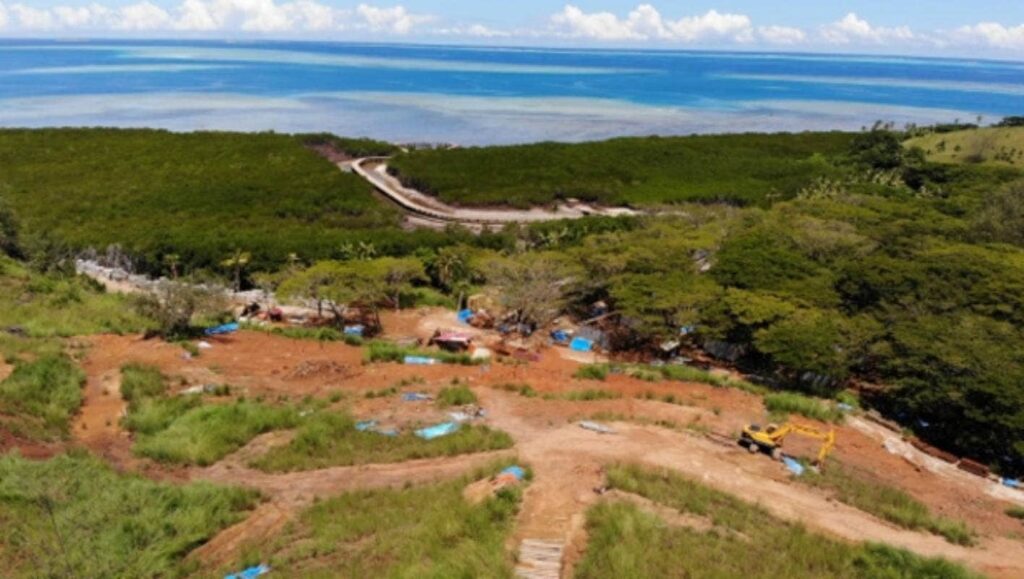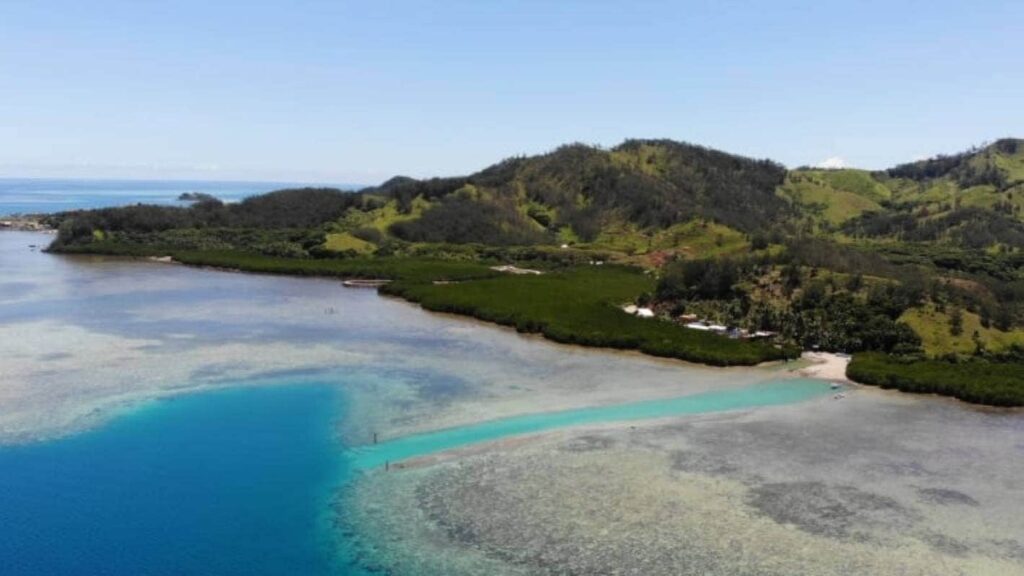
In Part 2 of The Politics of Distraction, Steve Sharp detailed how extractive industries in Melanesia drive deforestation and land degradation – and carbon emissions – in a regulatory climate of dysfunction and lawlessness. In a parallel universe, Pacific climate diplomats selectively hector non-Pacific governments for dragging their feet on the Paris Agreement while dismissing their own emissions as negligible.
In this third instalment, he highlights examples of Pacific governments as national environmental managers which do not bode well for their regional stewardship of the Blue Pacific Continent.
Deforestation and land degradation are key drivers of climate change and dire warnings are periodically released about the global significance of losing tropical forests for carbon storage, like the one contained in a 2018 report by international NGO Global Witness. In relation to commercial forestry in the Solomons, it projected forests are being cleared at 20 times the sustainable rate which is on-course to deplete forest reserves by 2036.
Just as Part 2 of this series questioned Papua New Guinea’s promises of emissions reduction, similar questions can be asked of the Solomons’ nationally determined contributions (NDCs): how can, for example, the unsustainable rate of logging cited above be disrupted by regulatory action? Occasionally, illegal activity is called out and prosecuted like in Isabel province last year. But judicial officers can only apply laws based on what they know in the absence of trusted monitoring systems.
Any commitments made by Pacific nations to mitigate and adapt to climate change are conditional on funds from international donors. ‘Subject to finance’ clauses are written into their official UN documents. But climate finance, however large, is not a panacea. It will not in itself make ineffectual environmental regulations work as they should. It will not ensure political integrity.
The separation of powers
A recent example from Solomon Islands illustrates the point. In the Isabel case cited above, elected officials were called out for decisions that favoured illegal loggers. We can speculate about why responsible ministers might decide to facilitate the sale of illegally cut timber but ignorance of the law is unlikely to be the main reason.
This occurred in the High Court in March last year when the judge chastised two environment ministers for authorising the sale of logs illegally cut by a logging company. The sale was ‘on behalf of the government’ which had seized them, but the judge said the sale would be to the benefit of the company and prejudicial to the dispute which was pending before the court.
‘While the Minister can assist a law breaker to benefit from breaking the law, the Court cannot,’ the judge explained before going on to accuse the two ministers of judicial interference.
Development blowback in Fiji
The interaction of politicians with the courts was also highlighted in Fiji in late 2018 in the lead up to its December elections. A story broke the following February on an online news site based in New Zealand. A hotel casino development – the largest in the country – was accused of damaging the foreshore (fishing grounds) on Malolo Island in breach of numerous environmental laws.
An environment lawyer accused the company of breaching its own lease and damaging mangroves and reef over which it has no development approval. He is also quoted saying that government agencies were informed the previous year and supplied with drone photography but took no action.
The developer, the story reports, ignored several stop-work notices, including from the High Court. The lawyer is quoted saying: ‘The Chinese development has not stopped. Nor has it been made to stop, which has raised serious questions about the Fijian government’s effectiveness or enthusiasm to administer its own environmental laws.’
The environment minister revealed he referred the alleged damage to prosecutors several months earlier. An Opposition parliamentarian states: ‘Enforcement is weak and the villages suffer…All arms of government have been negligent here by not following through on enforcement. They should cancel the lease and get the company to rectify and pay damages.’
By April, the same NZ reporting team was in Fiji following up the same story but this time with a camera crew. The three-person crew was arrested. After being held overnight, they were released on the PM’s orders as the government went into damage control. ‘Rogue officers’, it said, were responsible for the arrests, following their release. Immediately after the flurry of publicity, the Malolo Island development approvals were cancelled. The wheels of enforcement only started to turn after there had been widespread regional exposure.

If a resort developer in Fiji can destroy 5000 mangrove trees, apparently without fear of consequence, could other Pacific jurisdictions be similarly vulnerable? And if enforcing national environmental laws is such a struggle, what are the chances for stewardship of the Blue Pacific?
When the case finally went to court last year, a letter from the developer was tendered which read: ‘[I]t is not FREESOULS (sic) intention to bring disrepute to the Government’s efforts of COP23 and mitigating climate change factors’, as if the developer’s guilty conscience was talking while acting with impunity.
‘As both a Fijian who treasures our environment and a global advocate for sustainable development, I share the public’s outrage.’ PM Bainimarama insisted at the time.
Although the Chinese company was found guilty of environmental violations in April last year, it was not sentenced by the High Court until one year later.
Collective regional arguments about climate finance and the pressuring of big polluters as seen at COP26 in Glasgow will be more convincing if individual governments are seen to have willing hands on the levers of environmental regulation within their own sovereign territories. The words of Pacific diplomats will carry more weight abroad if national regulations are seen to be administered by fearless public servants at home rather than craven or cowed bureaucrats beholden to vested interests.
